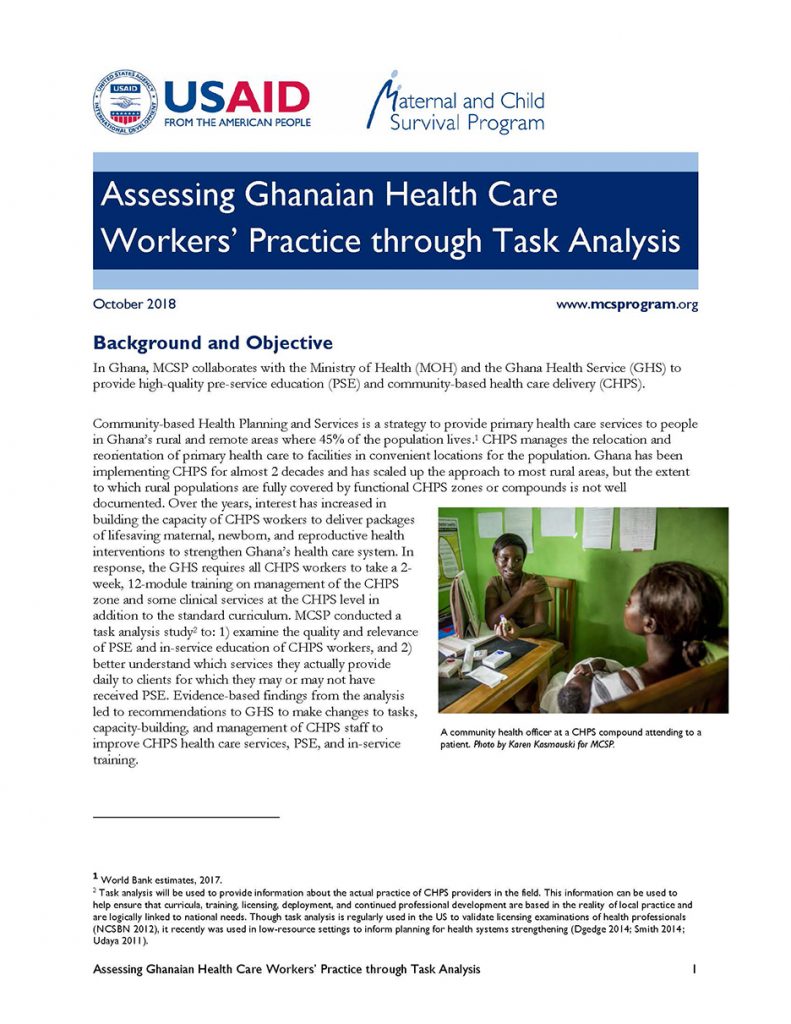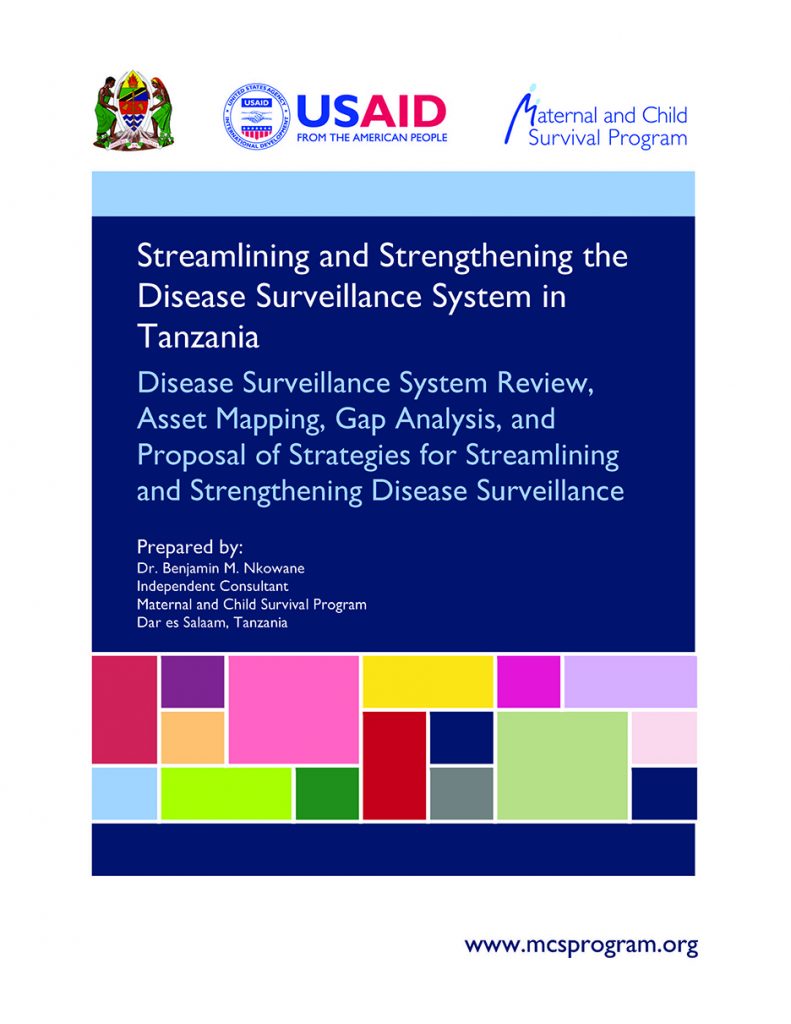
The Government of Tanzania adopted the Integrated Disease Surveillance and Response (IDSR) system as the platform for all disease surveillance activities in the country. Today, Tanzania’s IDSR guidelines include surveillance and response protocols for 34 diseases and conditions of public health importance. They outline, in detail, necessary recording and reporting procedures and activities to be […]
Read More…
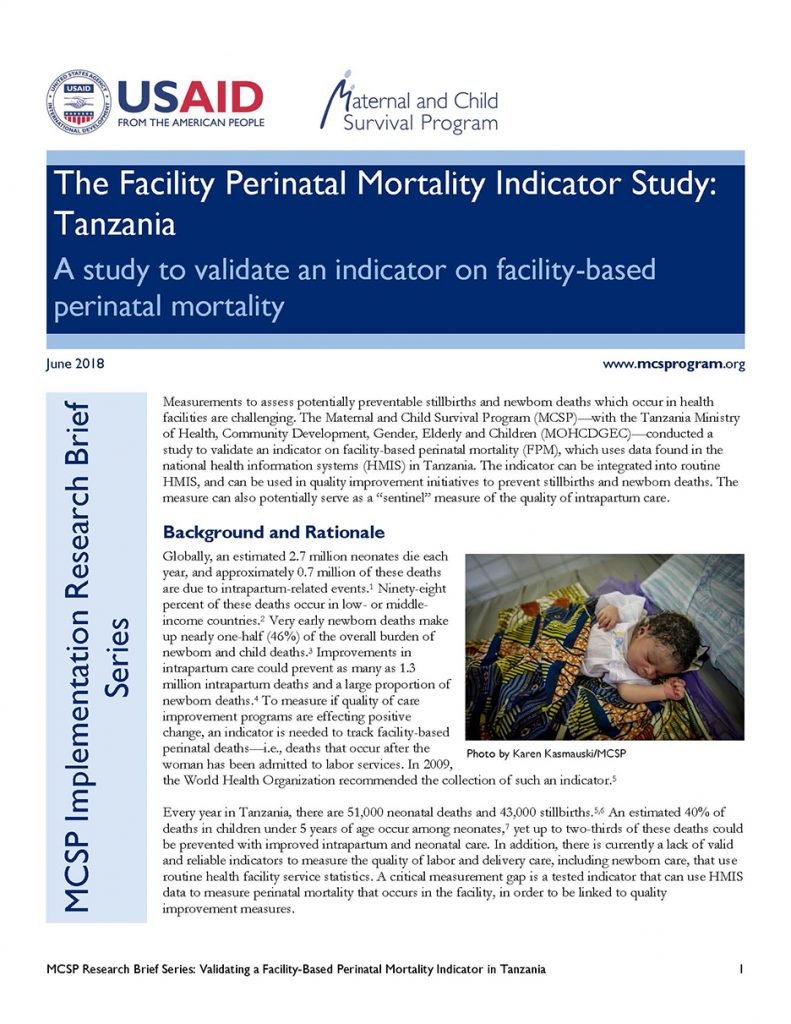
Measurements to assess potentially preventable stillbirths and newborn deaths which occur in health facilities are challenging. MCSP with the Tanzania Ministry of Health, Community Development, Gender, Elderly and Children (MOHCDGEC)—conducted a study to validate an indicator on facility-based perinatal mortality (FPM), which uses data found in the national health information systems (HMIS) in Tanzania. The […]
Read More…
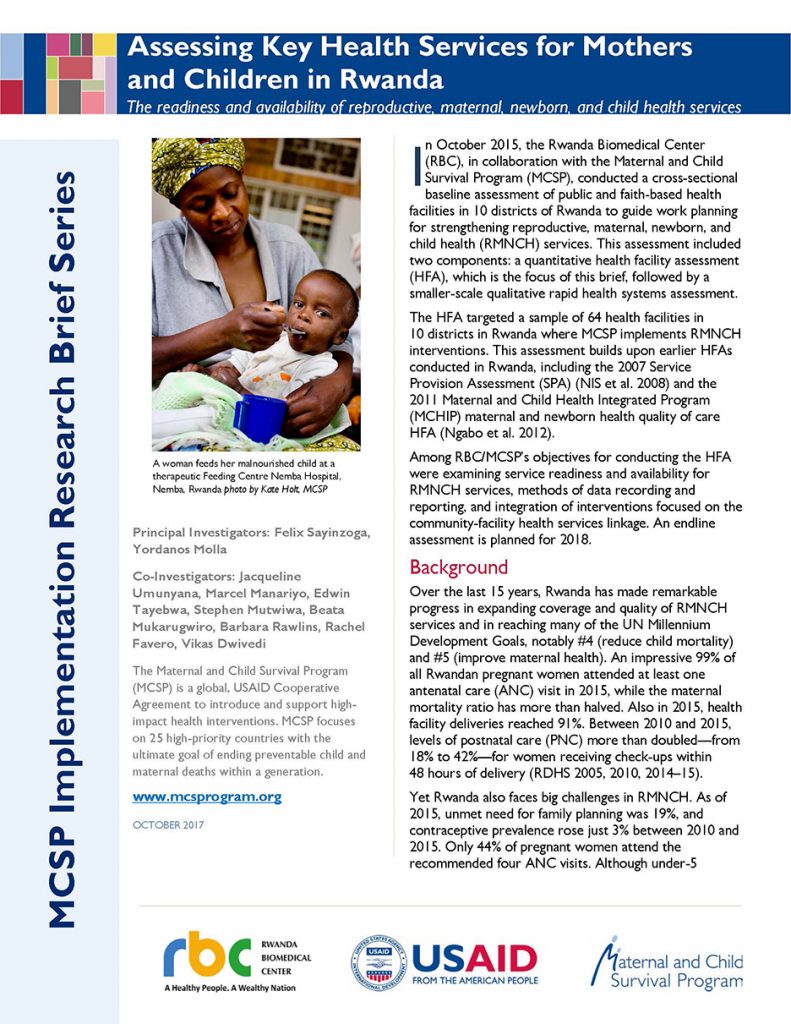
In October 2015, the Rwanda Biomedical Center (RBC), in collaboration with MCSP, conducted a cross-sectional baseline assessment of public and faith-based health facilities in 10 districts of Rwanda to guide work planning for strengthening reproductive, maternal, newborn, and child health (RMNCH) services. This assessment included two components: a quantitative health facility assessment (HFA), which is […]
Read More…
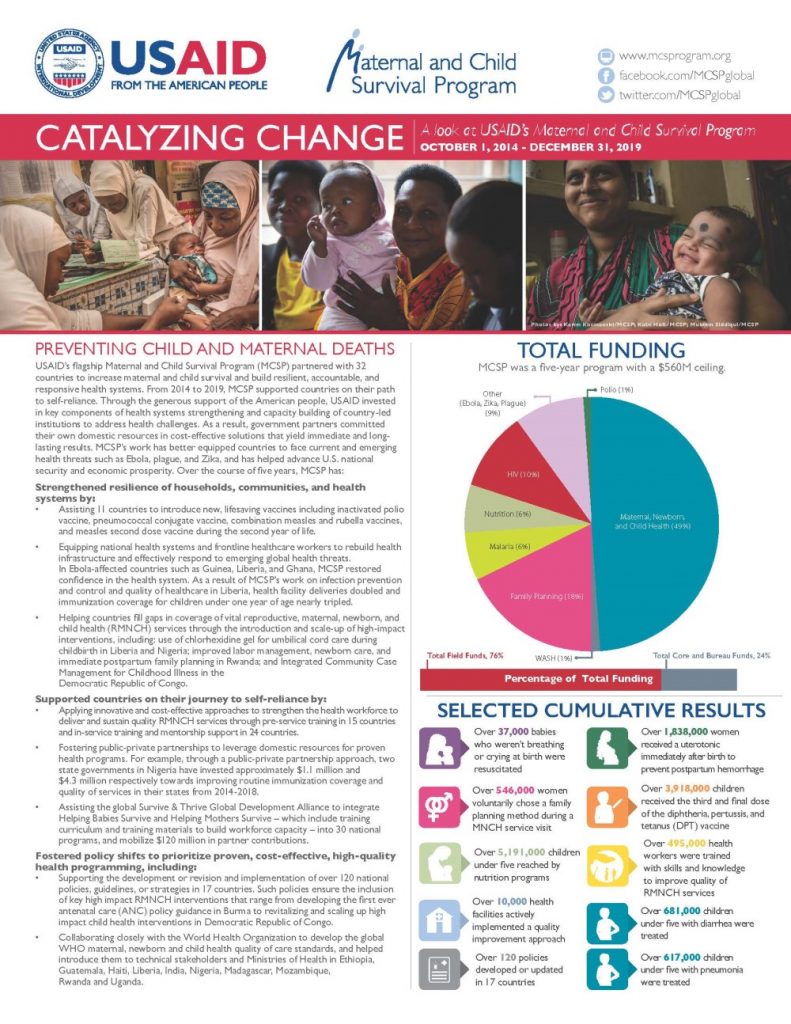
MCSP has partnered with 32 countries to increase maternal and child survival and build resilient, accountable and responsive health systems. MCSP’s work has better equipped countries to face current and emerging health threats such as Ebola, plague, and Zika, and help advance U.S. national security and economic prosperity. Since 2014, MCSP has: strengthened resilience of […]
Read More…
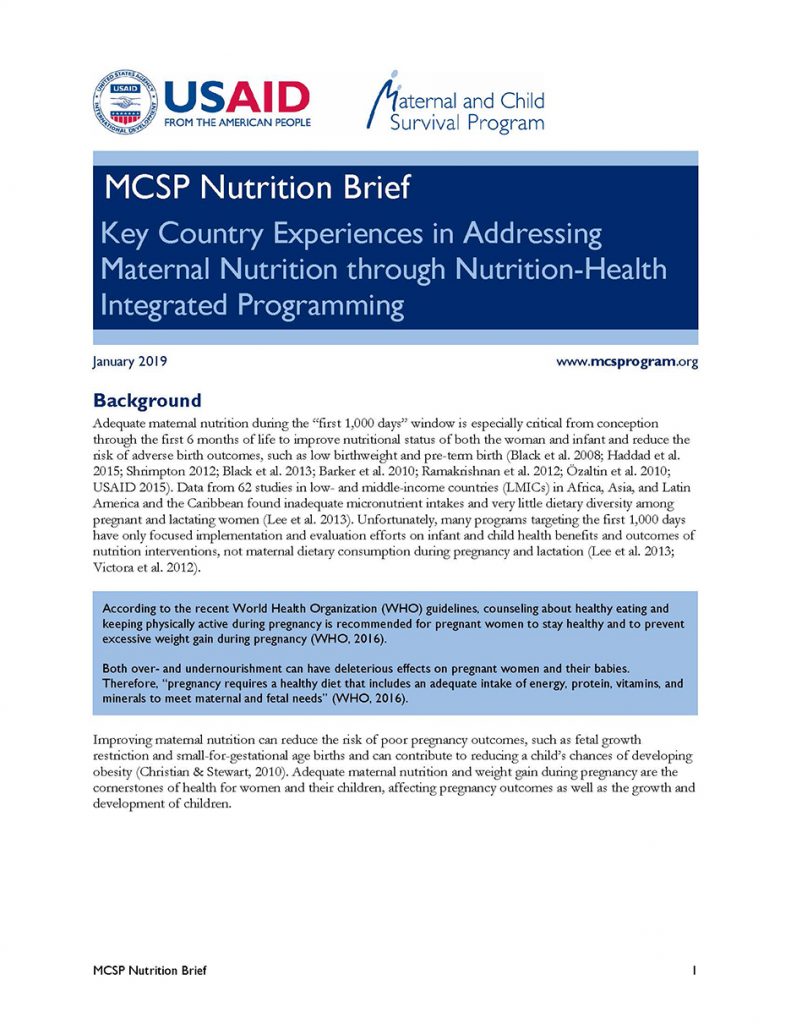
This nutrition brief presents a summary of MCSP-supported interventions at the country level that aim to improve maternal nutrition in low- and middle-income countries. […]
Read More…
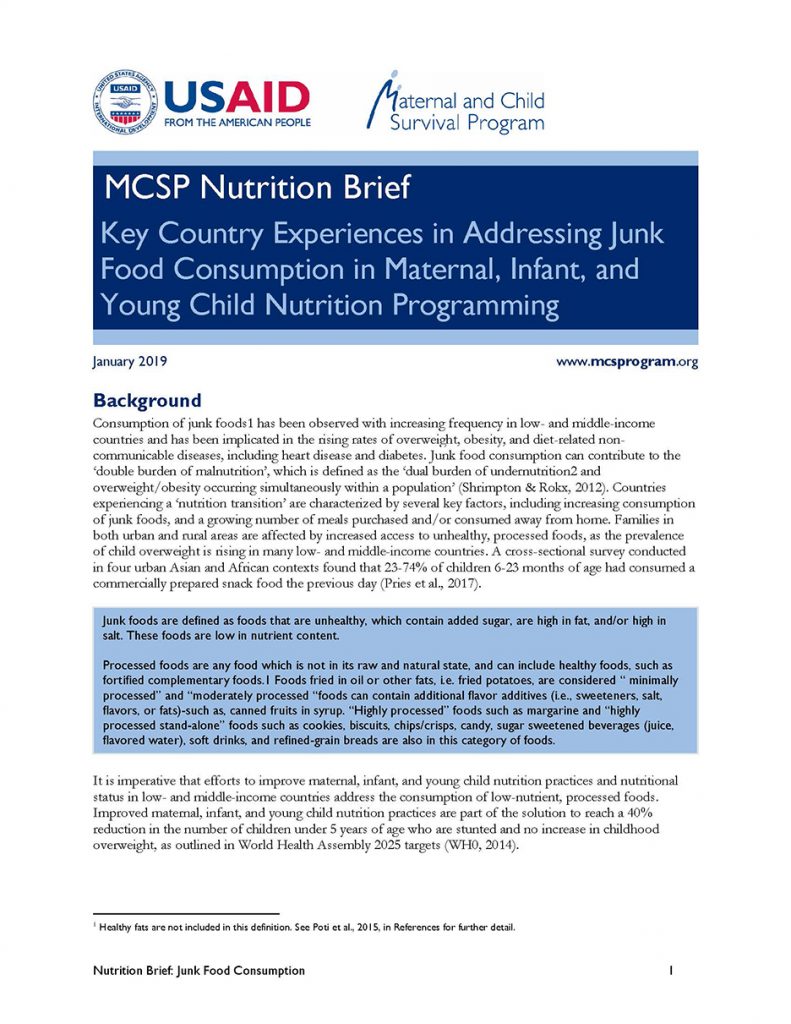
This nutrition brief presents a summary of MCSP-supported interventions at the country level that aim to address junk food consumption in low- and middle-income countries. […]
Read More…
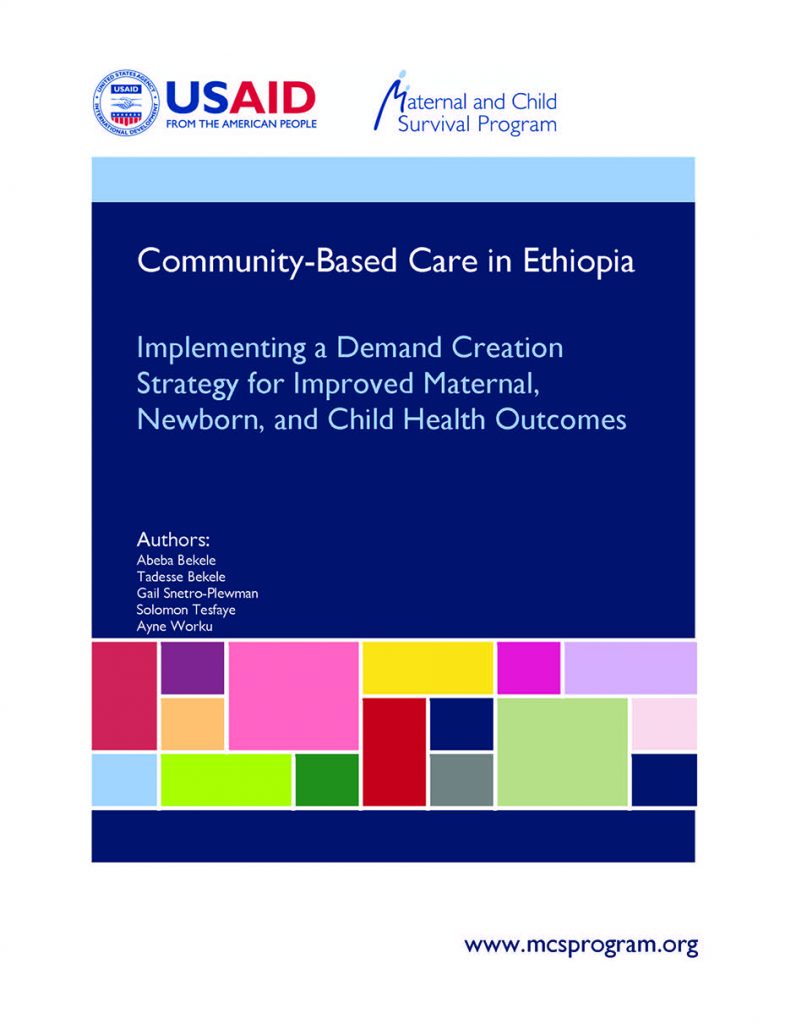
In 2014, the Federal Ministry of Health (FMOH), the Maternal and Child Survival Program-Newborns in Ethiopia Gaining Attention (MCSP-NEGA) project, and country partners developed a Demand Creation Strategy for MNCH-CBNC that focused on approaches to address the persistent low demand for community-based newborn care (CBNC). The design process included a review of global and local […]
Read More…
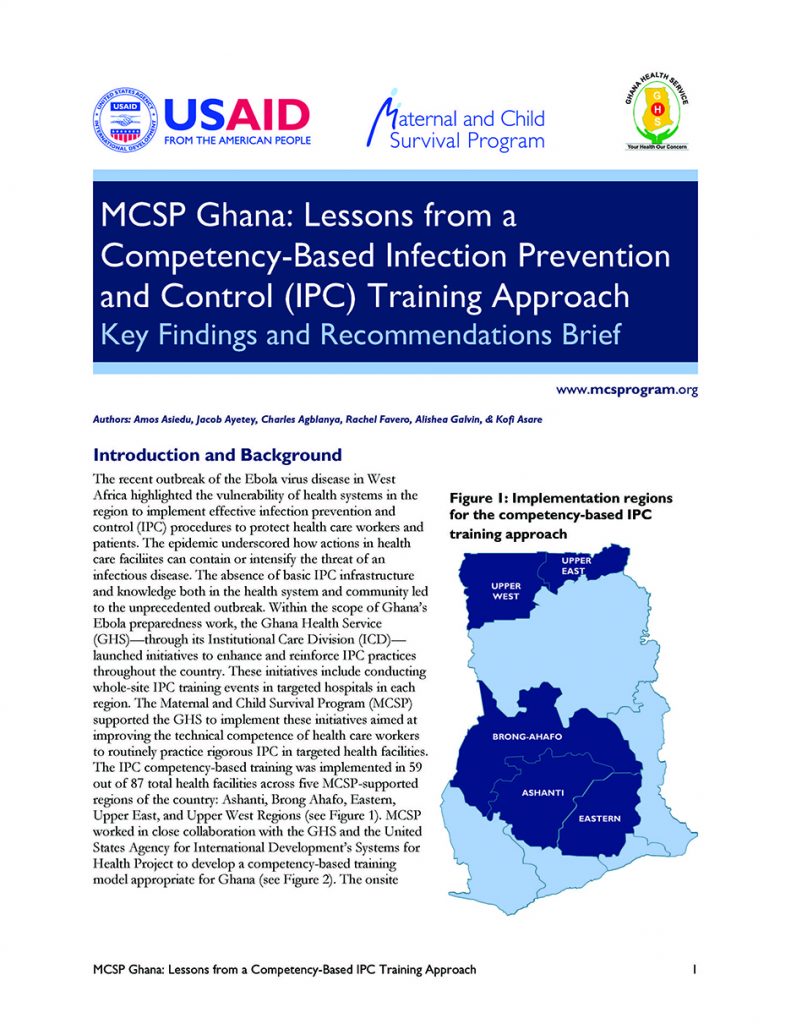
The recent outbreak of the Ebola virus disease in West Africa highlighted the vulnerability of health systems in the region to implement effective infection prevention and control (IPC) procedures to protect health care workers and patients. The epidemic underscored how actions in health care facilities can contain or intensify the threat of an infectious disease. […]
Read More…
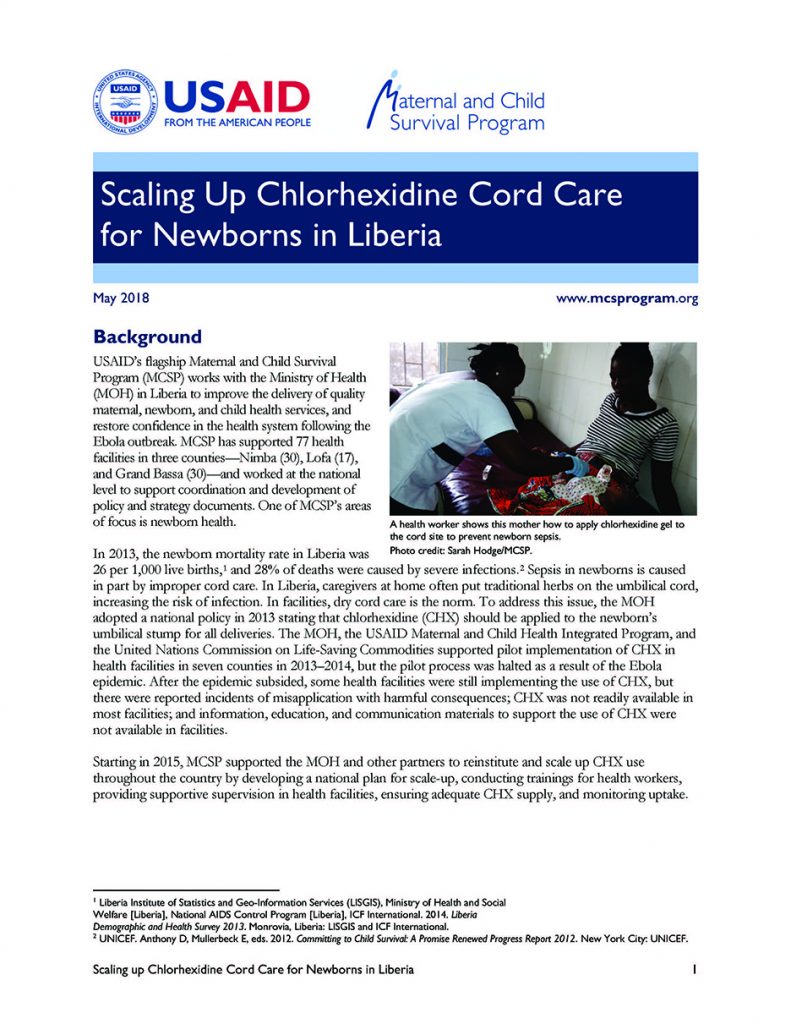
MCSP works with the Ministry of Health (MOH) in Liberia to improve the delivery of quality maternal, newborn, and child health services, and restore confidence in the health system following the Ebola outbreak. In 2013, the newborn mortality rate in Liberia was 26 per 1,000 live births, and 28% of deaths were caused by severe […]
Read More…




